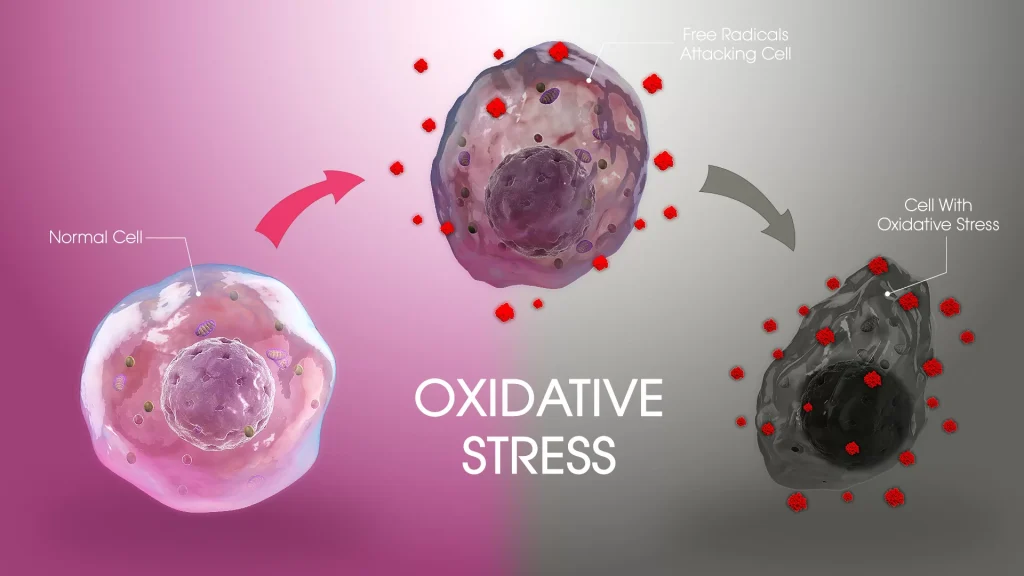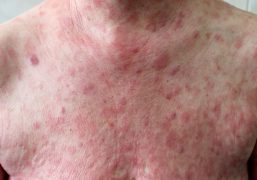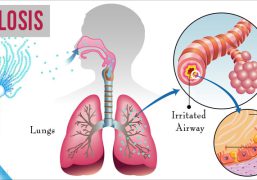Oxidative stress
Oxidative stress refers to an imbalance between the production of reactive oxygen species (ROS) and the ability of cells to detoxify them or repair the resulting damage. ROS are highly reactive molecules that are produced naturally as a byproduct of cellular metabolism, but their production can also be increased by exposure to environmental stressors such as radiation, toxins, and pollutants.
When there is an excess of ROS, they can damage cellular structures such as lipids, proteins, and DNA, leading to cellular dysfunction and even cell death. This damage can contribute to a variety of diseases and conditions, including cancer, neurodegenerative diseases, cardiovascular disease, diabetes, and aging.
The body has several mechanisms to neutralize ROS and prevent oxidative stress, including enzymes such as superoxide dismutase and catalase, and antioxidants such as vitamin C, vitamin E, and glutathione. Lifestyle factors such as diet, exercise, and reducing exposure to environmental stressors can also help reduce oxidative stress.






